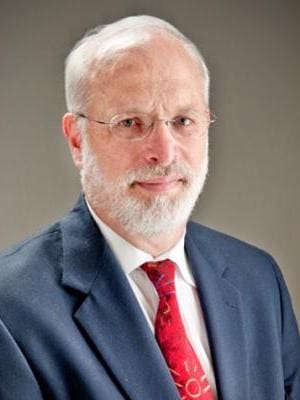Rosh Hashanah is the season wherein Jews are supposed to have great resolve and great hope. There are too many negative forces that tell us that we cannot do it. There are too many excuses for not being the type of Jews and human beings that we really and truly ought to be.
We have experienced this season many negative things that are not necessarily of our own doing. Of course, I am speaking of the financial crisis, which has consumed the headlines in recent days.
I have been thinking of lately about what could be the response of our temple community if we go into a significant recession. And I say this with a “Has ve Halilah,” a “God forbid a thousand million trillion times!”
Judaism is based upon the idea of community. We need 10 people for prayer. We recognize that there are times in which we will be angry with our community, but the rabbis tell us that above all “do not separate yourself”–or your family for that matter–from the community.
They taught this because the story of Jewish history has been one of deriving strength through our connection to community. Yes, there might be safety in numbers, but more than that, in Judaism there is compassion, caring, meaning and learning in community.
The community of the Mir Yeshiva fled Poland to Vilna ahead of the Nazis, and many of that community eventually ended up in Shanghai. Together, they survived as a community. Our founders called our congregation “Kehillah Kedosha Adat Yisrael,” a “holy community among the people of Israel.”
Should we experience a difficult recession, God forbid, what should the response of our Temple Emanuel community be?
First, Temple Emanuel should be a place of safety and support during difficult times. We need to remind our members, especially those who might find themselves out of a job, that they are cherished in this community. We need to listen to them and to do anything we can to help them and their family. If possible, we need to remind them that they have gotten though such difficult times in the past and that we are here to help them through these times in the present and future.
Second, we need to encourage them to become more active within the congregation. Such activity may indeed be a significant way not only of networking, but of keeping a positive attitude and avoid depression. Prayer and reading Psalms should be taken seriously and stories from Jewish history of times when adversity was followed by triumph might be very useful.
Third, in the event of a significant recession, we should establish a special committee of successful people who could appeal to the community for possible job openings, help prepare resumes, coach the unemployed in interview skills and advise them of possible employment opportunities.
What I am speaking of here is what I would call “inreach.” This type of inreach will be critical in helping our members see Temple Emanuel as something more than a place for life-cycle events. Such inreach to our members in need could help people realize that Temple Emanuel is indeed a caring congregation. Such inreach could help us indeed become more of what the founders envisioned, “A holy Community among the people of Israel.”
In such a situation, those of us who are retired may have special skills and knowledge that could be very helpful. Those with greater means will be called upon to do more to keep our community, not only afloat, but caring and compassionate.
Together over the years, we have seen Temple Emanuel develop into a wonderful congregation and community. We have two wonderful facilities. Our staff is terrific and stable. As we approach an uncertain financial situation, we need to do all in our power to maintain that which we have built with such effort and of which we are so very proud, because Temple Emanuel is not merely an institution, it is and it strives to be a safe caring and compassionate community.
Rabbi Fred Guttman is rabbi at Temple Emanuel in Greensboro, N.C.

